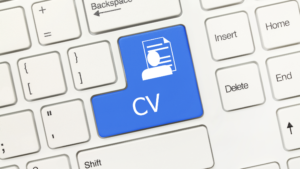If you’ve ever sat down to write your CV or LinkedIn profile, you probably stared at the screen thinking, “What do I even have that counts as experience?” That’s a common feeling for many people, especially immigrants building new careers in Canada, students just starting out, or professionals trying to pivot into a new field.
You likely have way more transferable skills than you realise. Transferable skills are abilities that move with you from one role to another, no matter the industry. Think about things like communication, problem-solving, teamwork, or even leading small projects. These don’t disappear just because your job title changes.
The problem is, most of us don’t see those skills clearly because we’re too focused on job descriptions. This is where AI tools step in to shine a light on what’s been hiding in plain sight.
How AI Tools Identify Hidden Strengths
AI doesn’t just scan your résumé for keywords. It looks at patterns in your experiences and matches them against thousands of real job roles. Platforms that use natural language processing (NLP) can read between the lines and highlight skills you might have overlooked.
For example, if you’ve been volunteering to organise events, an AI tool might recognise project management and leadership skills hidden inside those tasks. If you’ve been tutoring or mentoring a friend, it could tag you with teaching and coaching abilities. Even soft skills like empathy or adaptability can surface when AI maps your background against broader industry needs.
This is powerful for anyone trying to move forward in their career:
- Immigrants can get skills recognised beyond traditional certificates.
- Students can showcase experience from side projects or part-time jobs.
- Career pivoters can see how their old role connects to something entirely new.
By translating your experiences into recognised skills, AI gives you a language that recruiters and employers already understand and that can completely change the way you tell your story.
Why This Matters for Immigrants, Students & Career Pivoters
For immigrants, the toughest part of starting fresh in a new country is that your degrees or work history don’t always transfer smoothly. In Canada, many internationally trained professionals face this challenge (Government of Canada on foreign credential recognition). AI can help bridge that gap by showing how your previous role skills translate into the Canadian job market. For example, if you worked as an engineer abroad, AI might highlight transferable abilities like problem-solving, project coordination, and analytical thinking that fit other industries too.
For students, the issue isn’t a lack of skills; it’s recognising that part-time jobs, school projects, or even running a small club count for something. AI can take those smaller experiences and map them into broader categories like teamwork, leadership, and digital literacy. This means you don’t leave your résumé looking “empty” just because you’re new.
And for career pivoters, AI acts like a translator. It shows you how what you did before can fit into a new space. Let’s say you’ve been a teacher and want to move into corporate training. AI can connect the dots between lesson planning and curriculum design with employee learning and development.
In short, AI helps these groups avoid underselling themselves. It makes your hidden skills visible in ways that employers instantly understand.
How to Use AI to Surface & Leverage Those Skills
So, how do you actually put this into practice?
- Upload Your Résumé or Profile Into AI Tools
Career platforms like Rezi or Kickresume use AI to scan your experiences and point out strengths you might miss. - Try Skill-Mapping Assessments
Some AI platforms, like Eightfold.ai, go beyond your résumé and compare your skills to millions of real job profiles. This gives you a data-backed view of where your strengths sit in the market. - Cross-Check AI Insights With Human Feedback
AI can give you suggestions, but it’s even stronger when combined with feedback from mentors, peers, or coaches. - Build a Personal Action Plan
Once you know your transferable skills, you can:- Reframe your résumé to highlight them.
- Use them as keywords in your LinkedIn headline.
- Map them to career paths that fit your new goals.
AI is not about replacing your judgment; it’s about giving you clarity and language to better market yourself.
Challenges, Risks & Ethical Considerations
Of course, AI isn’t perfect. It can sometimes highlight the wrong skills or miss context. For example, maybe you worked in a family business and wore many hats. AI might not fully capture the depth of those experiences. That’s why you still need to review and refine what the system gives you.
Another issue is bias in AI models. If the dataset doesn’t fully represent diverse backgrounds, immigrants or career switchers could be disadvantaged. Transparency, accountability, and human oversight are key.
So the rule here: AI is a mirror, not the final judge. Use it as a tool, but not as your only voice.
At the end of the day, most of us are sitting on a pile of transferable skills we didn’t know we had. Whether you’re starting over in a new country, preparing to graduate, or making a career pivot, AI can help you see your value more clearly.
But don’t stop at just “seeing.” Take action:
- Try a free AI résumé scanner this week.
- Rewrite your LinkedIn summary with your new list of skills.
- Ask someone in your network if they see the same strengths AI identified.
Your skills are already there. AI just gives you the words to describe them and once you can describe them, you can start using them to open the right doors.






